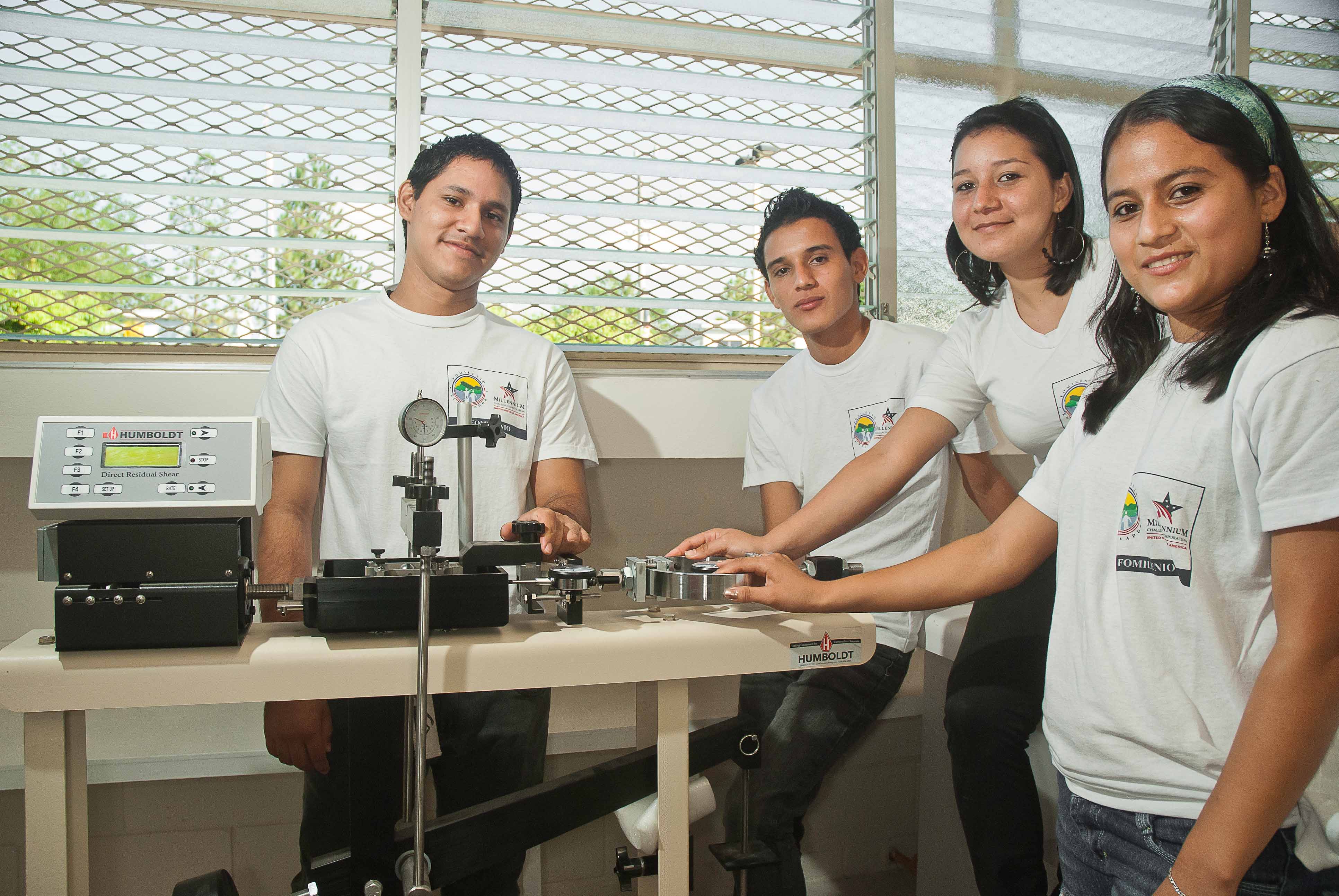
Photo credit
Students at the MCC-funded ITCHA technical college in Chalatenango, El Salvador, can earn degrees in marketing, engineering and computer programming, as well as baking and sewing. The economic growth that comes with education and employment opportunities is critical in developing countries where people under the age of 30 make of the majority of the population.
Young people make up a disproportionate share of the population in MCC’s partner countries, so it’s no surprise that when MCC officials visit these countries to discuss poverty reduction, one of the issues that comes up again and again is the need to invest in employment opportunities for young people.
The reason is simple: developing countries face an unprecedented “youth bulge” that poses serious social and political challenges—if it isn’t handled correctly. It can also create great opportunity if it is.
What is the “youth bulge”?
When a developing country succeeds in reducing infant mortality but birth rates remain unchanged, a larger and larger share of the country’s population is made up of children and young adults. In Africa alone, where MCC invests the most, more than 700 million people are under the age of 30, representing almost 70 percent of the population. In Central America, tens of millions of people are under age 30.
These ballooning numbers of young people can be a boon in a country where essential resources are available and a premium is placed on education, vocational training and employment. But without quality education and training that prepare young people to excel in the job market, these young people often face a lifetime of poverty and become vulnerable to radicalization, which can lead to destabilization of a country’s social and political order.
How does MCC help young people get jobs?
MCC gets to the heart of youth bulge challenges by working with our partner countries to lay the foundation for economic growth that creates opportunity for young people. A shortage of available training opportunities for students in countries like El Salvador and Morocco presents a barrier to economic growth in these countries. By investing in secondary, technical and vocational education programs, MCC is helping to increase employability and reduce poverty.
- In El Salvador, MCC’s $277 million compact includes investments to integrate a student-centered, active-learning approach and labor market-defined technical skills into curriculum revisions, teacher training and data collection systems. The government has also committed to implementing a rigorous impact evaluation and improving information systems within the Ministry of Education to better monitor education outcomes for girls and boys.
- In developing a second compact with Morocco, MCC is exploring investments in vocational training centers and secondary schools to help trainees get jobs, promote training and placement of women in non-traditional jobs, and reach the most disadvantaged groups – including unemployed urban populations. MCC is also exploring a Social Impact Bond to support employment programs for vulnerable populations, and innovative funding mechanisms like pay-for-results that focus on educational outcomes and country ownership.
These are just two examples of MCC’s work around the world to provide educational opportunities for young people that foster economic growth. Investing in youth today will pay dividends tomorrow. Our world will be safer, more productive, and more innovative because of it, and MCC is proud to be a part of the solution.

